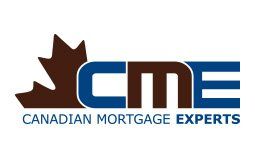the right broker for you.
Contact Us
We will get back to you as soon as possible
Please try again later
Contact Us
We will get back to you as soon as possible
Please try again later
Should I Lock In, or Stay Variable?
If you follow the news closely, there would appear to be a lot turmoil and uncertainty around interest rates. This past April, the Bank of Canada held the overnight rate at 1.25 per cent, suggesting it was closely watching inflation and wage growth.
“The Bank will also continue to monitor the economy’s sensitivity to interest rate movements and the evolution of economic capacity. In this context, Governing Council will remain cautious with respect to future policy adjustments, guided by incoming data,” the BOC said at the time.
The Bank of Canada raised the rates a quarter point twice last year, and many economists are betting the bank will do the same before the end of the year.
If you’re a conservative homeowner and have locked into a fixed rate, the speculation of an increase isn’t likely keeping you up at night. You can rest easy for the next few years.
But if you’re like many Canadians who chose to go variable, these creeping increases are probably getting you a little nervous. While mortgage brokers don’t have a crystal ball to tell you where rates are going, you can probably assume they are going to increase maybe 50 basis points. There’s all kinds of tea leaves economists are trying to read to get a handle on where the rates will go. While that’s what they get paid to do, increases have real world consequences on your bottom line.
So now the question you may be asking is, should I lock into a fixed rate, or ride out my variable?
And like many financial questions, there’s no easy answer.
First, you’ll tend to find most first time homebuyers are little a skittish at going variable anyway, while someone in their second or third mortgage may have an appetite for a little more risk.
If you’re kept wide awake at night in fear of a rate increase, you may want to lock in. There is something to be said for peace of mind, and locking in your rate can certainly give you that.
But it’s also important to look at the big picture. If we assume the pundits are right and the rate goes up about a couple more quarter points, you still need to look at what that variable rate saved you over the term.
The rates have been historically so low, there’s a pretty good chance if you’ve been in a variable for a few years, the math will prove you still saved money over the five years, even with an increase. Depending on your risk appetite and your financial situation, staying in the variable could still payoff in the long run even with a few more increases.
But these decision are best not made alone. Speak to any of our Canadian mortgage professionals if you have any questions about locking in or not and they can help you make the best decision.
This article was originally included in the DLC May 2018 Newsletter.


QUICK LINKS
HEAD OFFICE

Copyright © 2023 DLC Canadian Mortgage Experts. All Rights Reserved | Privacy & Content Policy

